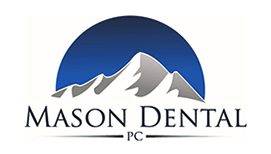
You’ve been out and about on a hot summer day and stop for lunch. Nothing sounds more appealing than a cold, fizzy soda to cool down and refresh. You’ve heard, though, that consuming sugary beverages is bad for your teeth, so you opt for diet soda instead. But did you know that diet sodas can be just as harmful to your oral health? Continue reading to learn about how these beverages may be hurting rather than helping the well-being of your smile.
Sugary Drinks
It’s true that super sugary beverages like certain juices and soda can be especially damaging to your pearly whites. The sugar content (up to nine teaspoons in a 12-oz soda) attracts bacteria in your mouth that decays tooth enamel. This damage is permanent and irreversible, and often leads to cavities. As a result, dentists recommend avoiding drinks like these.
Diet Drinks
Now that you know that sugary sodas spell bad news for your teeth, you may expect a low- or no-sugar diet soda to be the better choice. Perhaps, you figure you have less chance of cavities or decay with the diet option; but this isn’t the case. Diet sodas may not contain sugar, but they do contain acids that can cause just as much enamel erosion as regular sodas.
Beware of ingredients like phosphoric acid, citric acid, and tartaric acid. These ingredients bond with calcium, which weakens your teeth and leaves behind a chalky sensation or even tooth sensitivity. Furthermore, as it breaks down enamel, it leaves the soft, sensitive insides of your teeth exposed and vulnerable.
What’s A Better Option?
You can see how neither regular nor diet soda are optimal for your oral health. So what drinks are safe?
In an experiment, the University of Melbourne’s Oral Health Cooperative Research Centre learned that the only drink they tested that caused minimal damage was milk aside from water. As you may be aware, milk contains calcium and phosphate which help to strengthen, rather than deteriorate, your teeth. Milk does also contain natural sugars, though, so it’s still recommended that you consume milk moderately.
Tap water may be the best and safest option. Many public systems treat water sources with fluoride, which fights cavities. Water also keeps our bodies hydrated, so is a great choice no matter the circumstances.
Use A Straw
You are aware of the risks of both regular and diet soda, but might still indulge occasionally. What can you do to minimize the risk of tooth decay?
Experts say use a straw! Drinking through a straw minimizes the contact between the soda and your teeth, which helps to prevent deterioration.
On these hot summer days it can be awfully tempting to reinvigorate yourself with a cold soda, but keep in mind that you might be harming yourself in the process. Sticking with nourishing choices like milk or water, or drinking through a straw, can improve your chances of keeping your smile healthy and clean in the long run.
About the Author
Dr. Jonathan E. Mason earned his dental degree from the University of Connecticut School of Dental Medicine in 2006, and is the Co-Founder and Chief Clinical Officer for a dental service organization that supports over 40 dental practices in the northeast. If you are worried or noticing signs of tooth decay, you are welcome to contact his practice through the website, or by calling (802) 362-1099.
